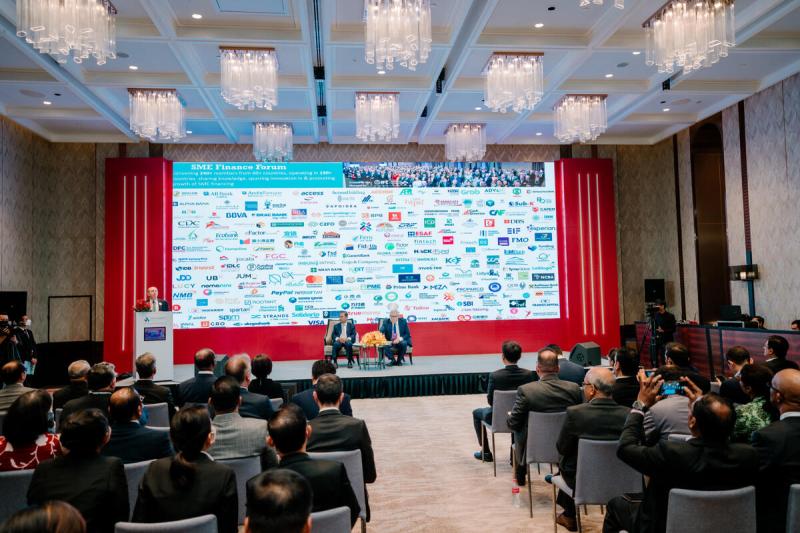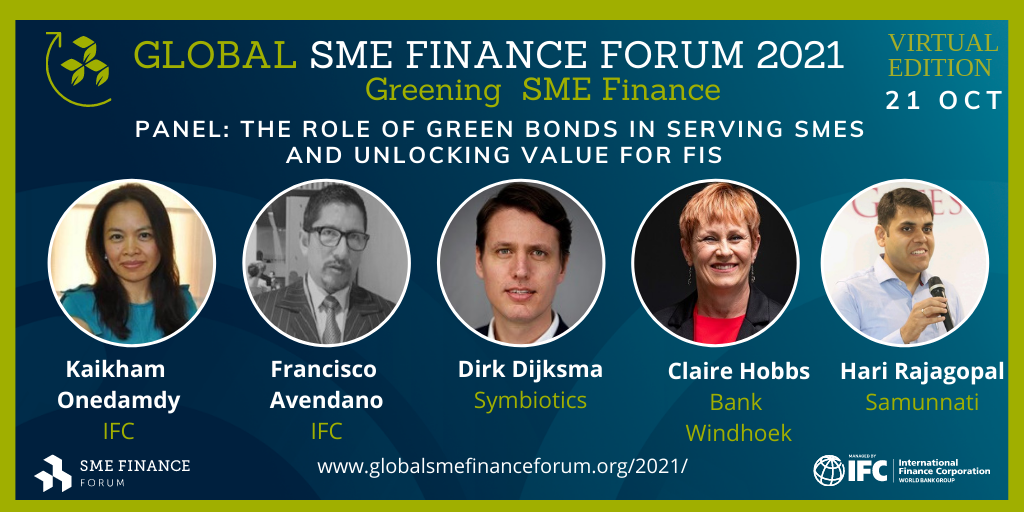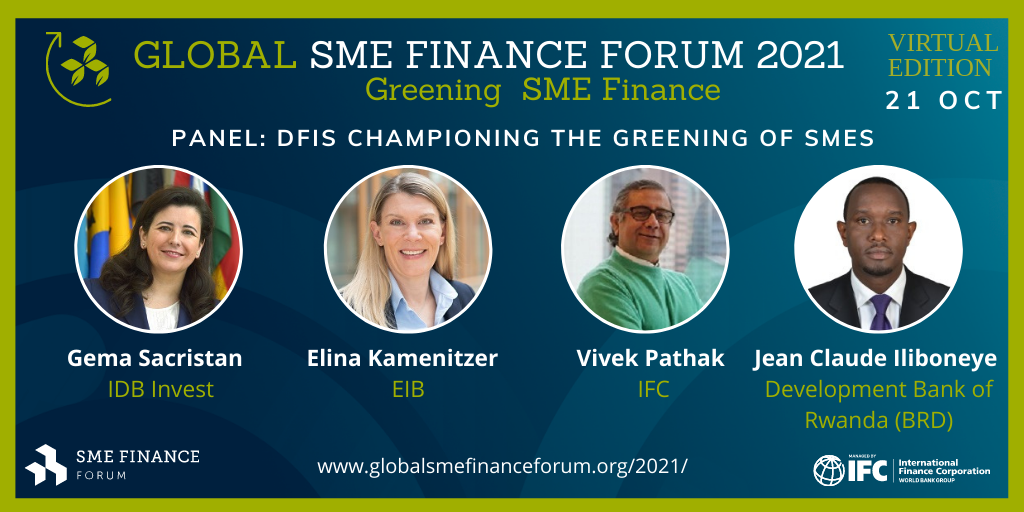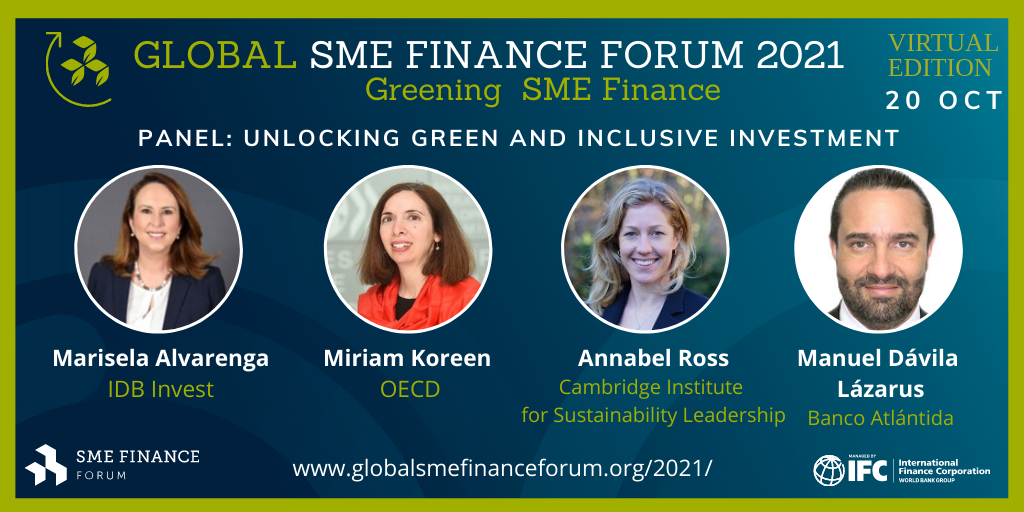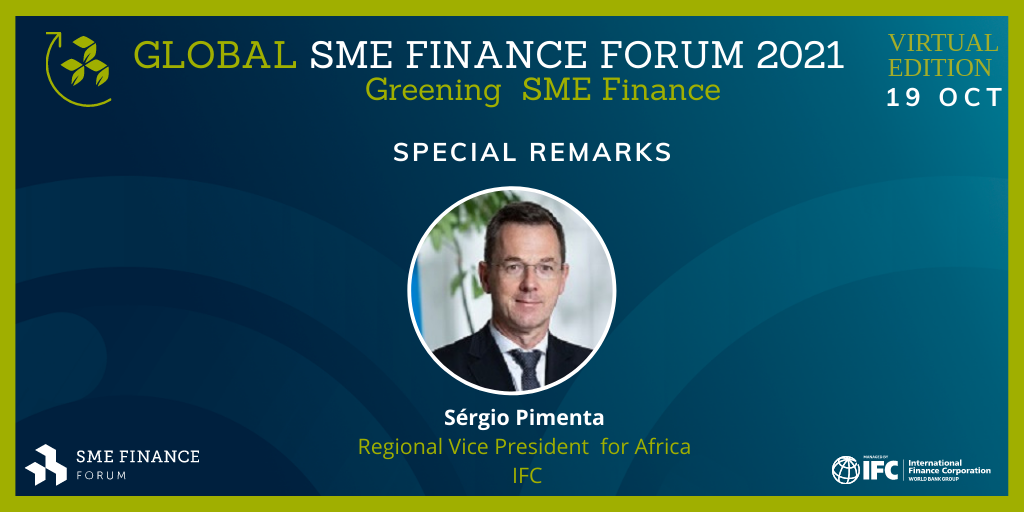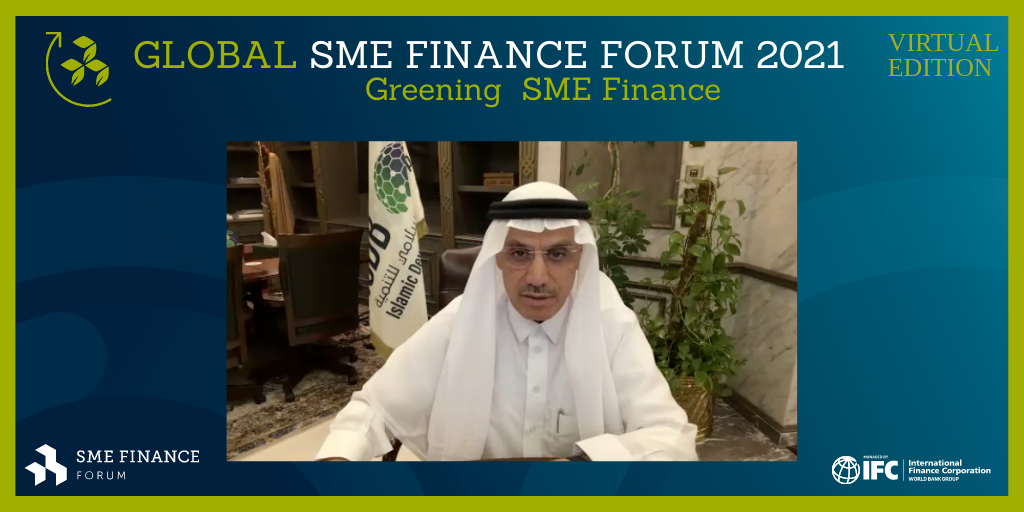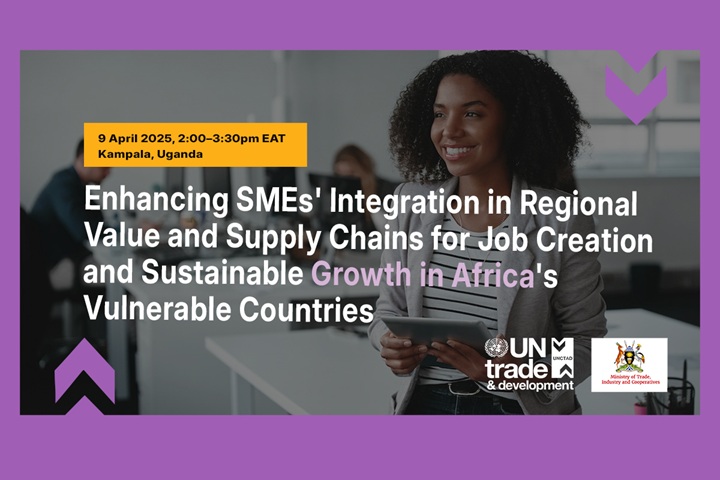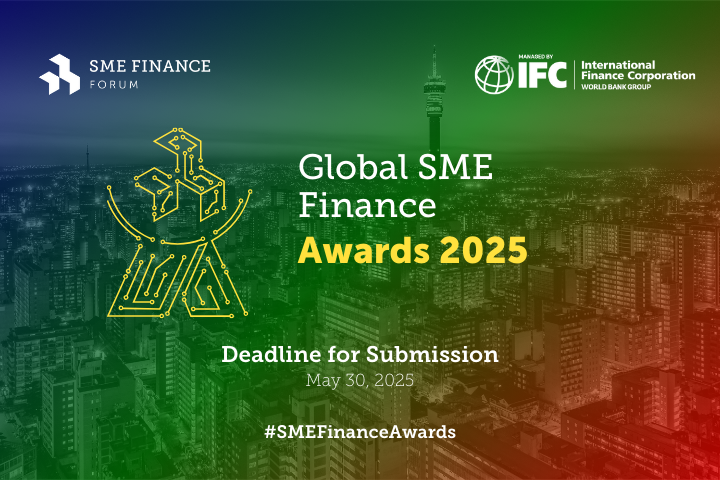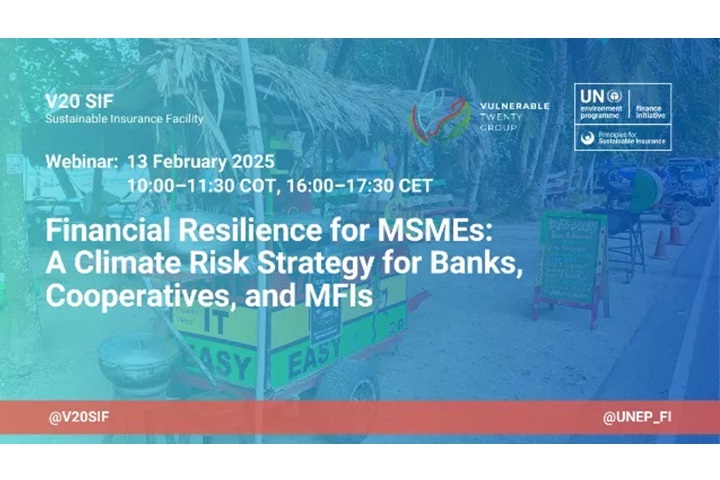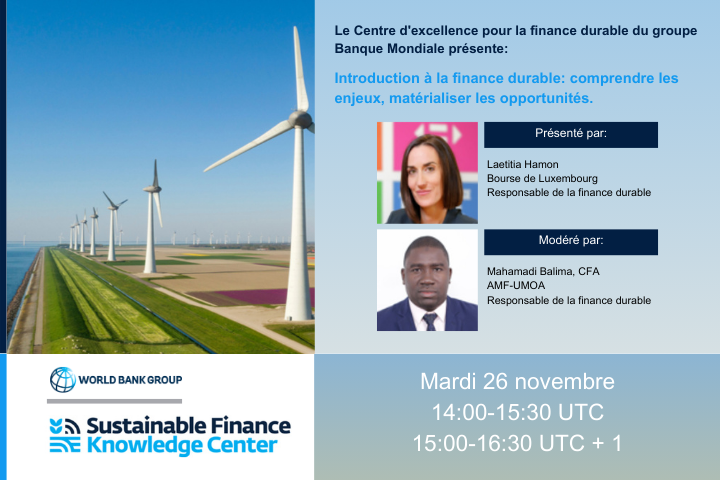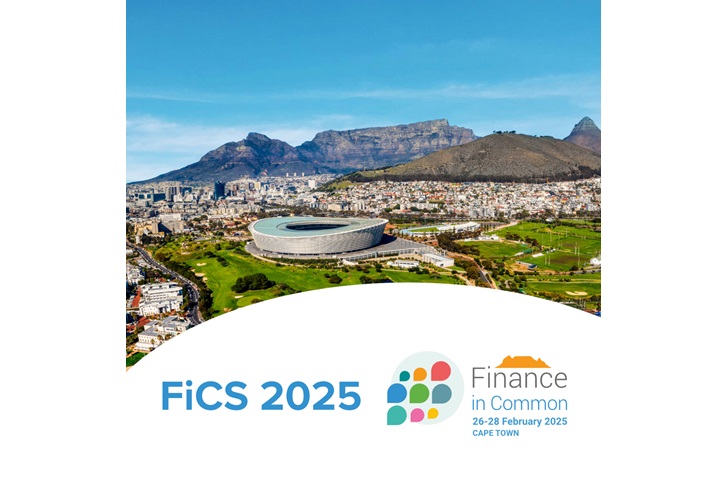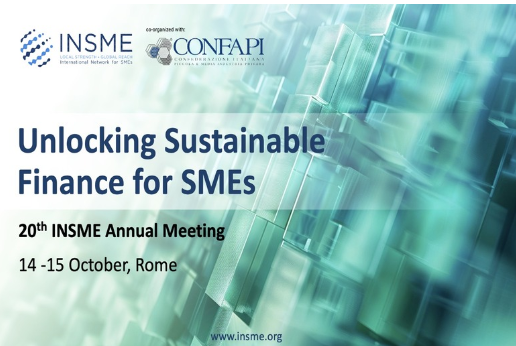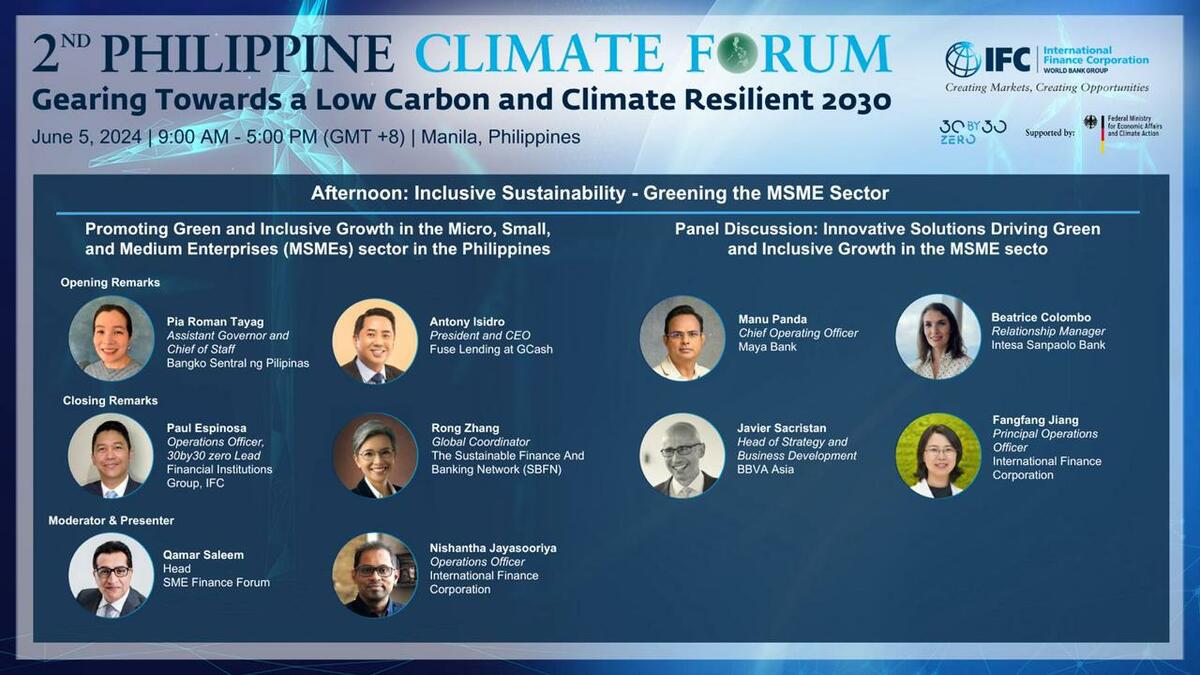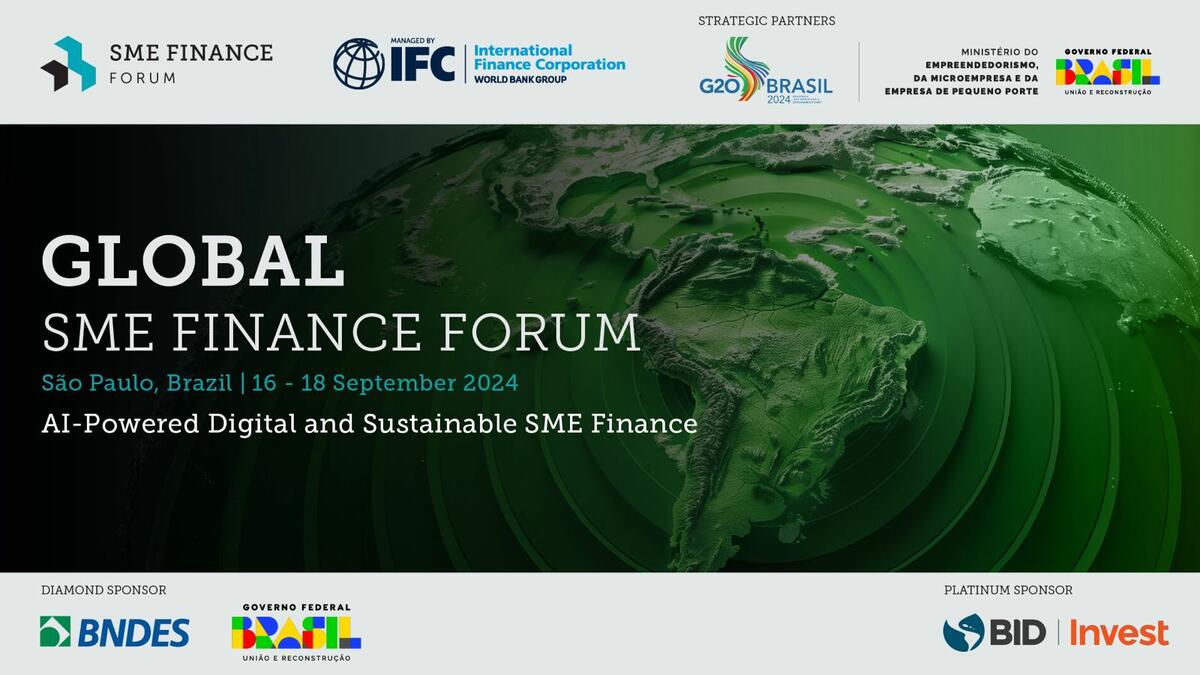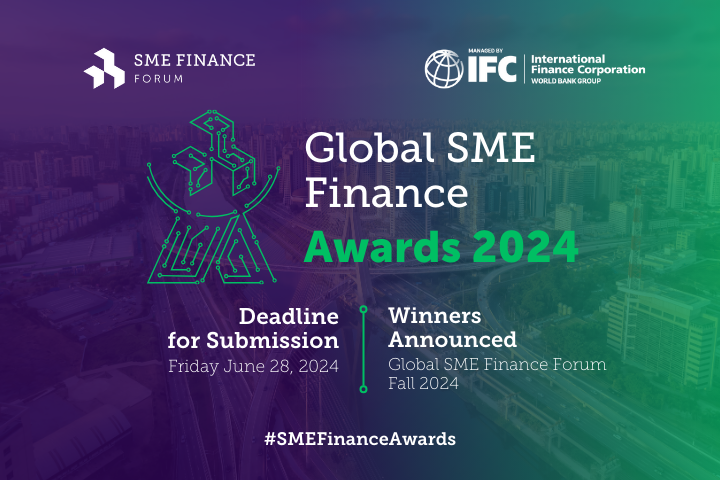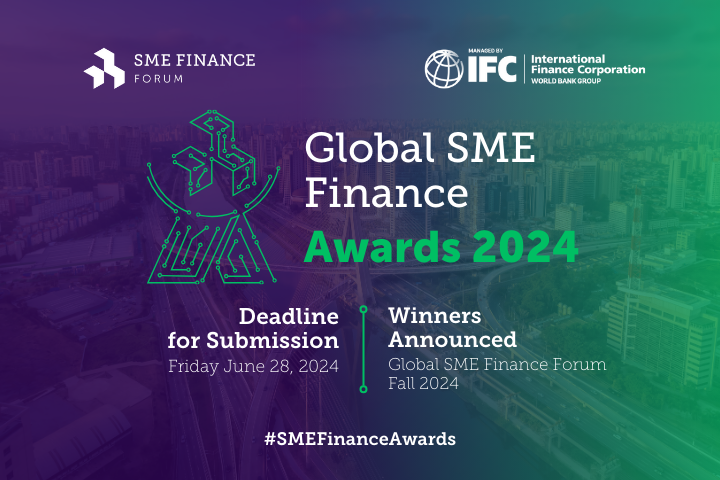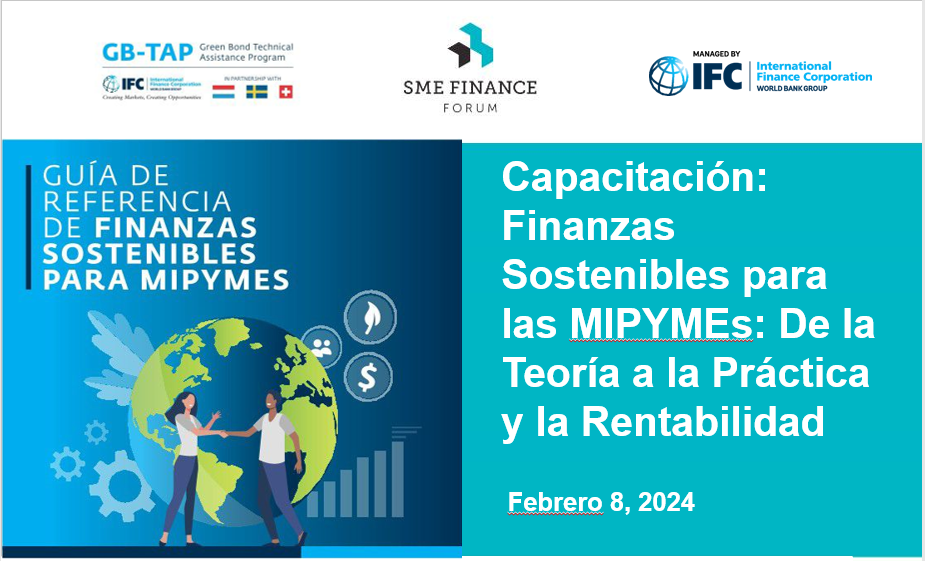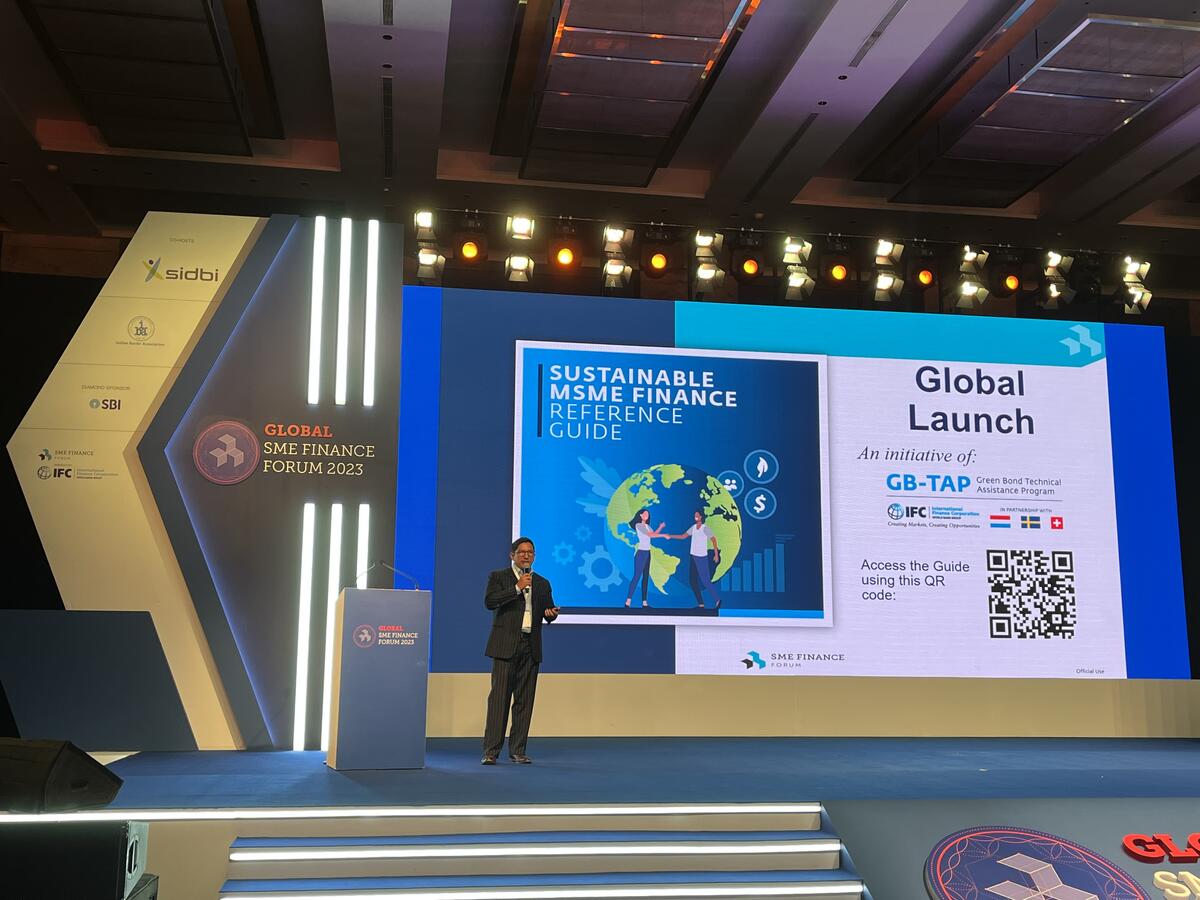What we heard on September 20th….
Opening remarks were given by H.E. Chea Chanto – Governor, National Bank of Cambodia and Tomasz Telma – Director, Financial Institutions Group, IFC
Chea Chanto laid out examples of how Cambodia is increasingly leveraging digitalisation to improve access to finance and Tomasz Telma talked about data driven solutions are replacing traditional credit histories or collateral and how SME focused fintech lenders have a big role to play in closing the SME finance gap.
Tomasz said: “Digitalisation and automation make it possible to customize products to the needs of various customer segments and the same technologies make serving high volume low value segments, like SMEs, both less risky and more profitable for financial institutions.”
The opening keynote was given by Michael Schlein – President and CEO, Accion and focused on building an inclusive and resilient digital revolution. Mobile money accounts are having a big impact and there’s an exciting growth in the use of digital tools, but billions are still invisible to the global financial system. Accion is offering some exciting products that will help people join the digital economy, maximise the impact of new tools whilst minimising harm.
The first plenary panel of the day focused on supply chain and gathered Qamar Saleem – Regional Manager Advisory Services, Financial Institutions Group for Asia and Pacific, Gwen Mwaba – Global Head of Trade Finance, Afreximbank, Naveen Subra-maniam – Managing Director, Head of Structured & Trade Export Finance APAC for Intesa Sanpaolo, Philip Herrey – VP, Enterprise Partnerships, Mastercard and Ravi Valecha – CEO, India Factoring.
Qamar stated to open the discussion that: “If you’re going to tackle the SME problem, you have to tackle the supply chain problem”. Gwen addressed the limitations of ESG in Africa. Suggesting that looking at it as SGE would be more appropriate to the realities of doing business on the continent. Africa has contributed less than 4% to the world’s carbon emissions and the focus on environmental risk assessments is not, cannot and should not be approached in the same way as for more developed territories. Ravi spoke about the importance of boosting awareness amongst SMEs of new means of finance and the need for a real cultural change to financing supply chains in order to keep social impact in mind. Phillip raised the limitations of tech and explained that sometimes nothing replaces the impact a sales rep can have in getting customers to understand the options available to them.
Naveen mentioned: ’You don’t always have to wait for the regulatory framework to match available tech. Regulations are an enabler but the market can wait for them to catch up and in the meantime still have legitimate ways to operate”.
The second panel of the day focused on agricultural digitalization with Hans Dellien - Agrifinance Specialist for East Asia and Pacific at IFC, Fifi Rashando – Impact Investment Manager, Good Return, Dr. In Channy – President and Group Managing Director, ACLEDA Bank, Manfred Borer – CEO, Koltiva and Rama Notowidigdo – Co-Founder, Sayurbox.
Fifi spoke about the lack of trust from private banks when it comes to agricultural lending because often, they don’t have an agricultural background. She raised the point of how important it is to banks to consult successful local entrepreneurs when looking at markets that you don’t really understand.
The last discussion panel of the day “Banking on SMEs: Driving Growth and Creating Jobs” was moderated by Hourn Thy – The Head of Operations for the SME Finance Forum at the IFC speaking to Hanh Nam Nguyen – Program Manager, IFC and Syed Abdul Momen – Deputy Managing Director & Head of SME, BRAC Bank.
Hanh Nam Nguyen presented GSMEF, an IFC program funded by UK & NL that encourages IFC’s clients to reach the most underserved SMEs (WSME, VSEs, Climate Smart SMEs, SMEs in remote regions, etc.) by offering clients advisory services, to develop their SME strategy, segmentation, products and solutions targeting SMEs, risk management and incorporating digitization as needed. Blending Donors’ money with IFC’s capital, to provide reduced-cost loans to enable banks to on-lend and providing guarantees to protect banks against potential losses from non-performing loans. Experience shows that expected losses are usually higher than actual indicating that financing SMEs can be profitable for FIs.
GSMEF is expected to have created over 1.2 million jobs. IFC uses the Reach Survey (outstanding balances in lending portfolios, broken down by loan sizes) to obtain feedback on its clients’ lending to SMEs. We recently conducted research, analyzing the last 3 years of our clients’ lending. Our detailed findings are summarized in our most recent Publication, called: Banking on SMEs: Driving Growth, Creating Jobs.
We wrapped up the day in the main room with an impassioned and lighthearted debate entitled “Will Robots replace SME bankers” moderated by our emcee Georja Calvin-Smith who was joined by six panelists: Rajeev Chalisgaonkar - Head of Business Banking, Mashreq Bank, Rachel Freeman - Chief Growth Officer, Tyme, Edoardo Borsari - Managing Director, Strands, Joyce Tee - Managing Director and Group Head of SME Banking, DBS, Arnaud Ventura - Managing Partner, Gojo and Philip Sigwart - CEO, Baobab.
The fourth industrial revolution is transforming banking capabilities across the board. Predictions about what that means in the long term are tough. Big data, AI, Machine learning, and a host of ever evolving emerging digital technologies could make SME finance more efficient and help financiers serve more SMEs faster and hopefully better. However, there are many challenges in the process of adoption.
Robots added value
Rajeev Chalisgaonkar
‘We have to have a little bit more faith in the robots because they can do things… We (bankers) like to think that the clients need us, but they don’t. They need banking. In fact, they don’t even indeed do banking. What they need is the time to run their businesses”
Philip Sigwart
“Every accountant in this world uses some accounting software, but there are more accountants than ever. So, accounting has not disappeared as a profession because there’s accounting software, but it just allows accountants to do their job more efficiently.”
Rachel Freeman
Replacement by technology can sometimes be a better choice because it can offer more flexibility to customers and can also be much more time efficient. A loan can be offered more easily to SMEs (based on the data available at the point of sales machine) and they can cut down their time spent on non-core business activities.
Robot limitations: the human touch
- Robots can potentially make banking progress harder, especially when we consider data protection and data regulation.
- Adoption is also a challenge and can also be a frustrating experience: For instance, chat bot which turned out to be just as frustrating as a real-life human customer service agent.
- One of the most important tasks of banking is maintaining connection with customers. This would be something that robots cannot do or cannot offer to humans, the real human connection.
-
Robots offer very advanced features, but they are sometimes under-used and if there's any problem, humans are the one to take responsibility and accountability for the problem.
Banks and Robots working together
Arnaud Ventura
“Robots won’t replace bankers any time soon, but the entire financial system will be unrecognisable, money will be replaced, and we will increasingly turn to crypto.
There will be a collaboration between humans and robots. Humans are feeling challenged by robots and are improving their process to be more efficient than robots.”
Joyce Tee
“Despite how advanced technology can be, we believe that humans and robots should be working hand in hand. Bankers are using robots to enable their business, but not to replace them.”


